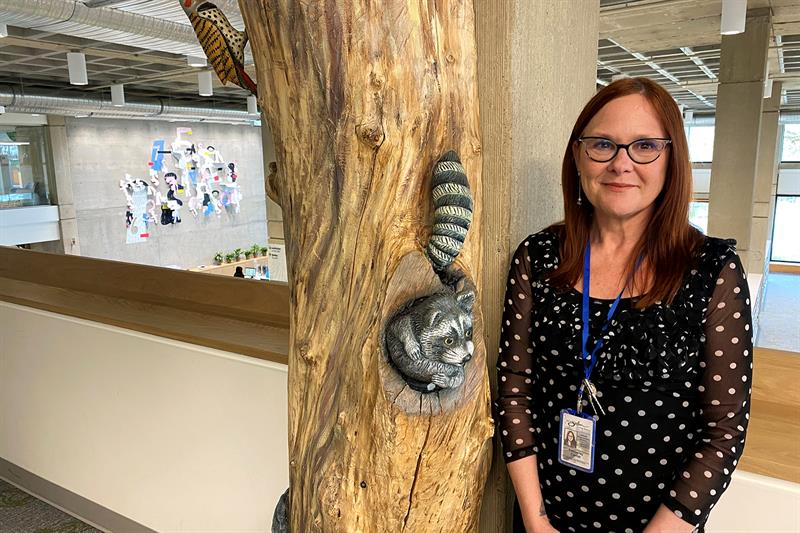
Salem’s new City Librarian, Kim Carroll, has worked in library programming and leadership for all ages. She plans to put that experience to use at the Salem Public Library. Her selection was announced March 28, after an interview process that offered the chance for residents to get involved.
“Kim brings a wide range of both library and educational experience to the job of City Librarian,” said Kristin Retherford, Interim City Manager. “As she leads the Salem Public Library into the future, we can expect her to balance traditional library values with ongoing innovation as we advance the level of service provided to our many patrons.”
Kim is a native of Oregon and earned her bachelor’s degree at Portland State University. She completed her master’s of Library Science degree through Emporia State University. She started her library career in 1998 at the Ledding Library in Milwaukie, Ore.
Before moving to the Salem area in late 2020, she worked at the Maricopa County Library District in Arizona for six years. While there, she served as youth librarian, branch manager, and regional manager. She joined the Salem Public Library as Assistant City Librarian in April 2021.
Kim says she’s looking forward to continuing to work with the library staff who are the heart and soul of the library.
“Just the passion for the work they do, the commitment to the community, the commitment to librarianship as a whole, no matter what position they’re in – it’s a very special place. The library itself is a special building. And the stakeholders – the Library Advisory Board and the Foundation – are great to work with.”
Library science has changed significantly since she started, Kim says.
“When I went to library school, I realized how important early literacy is for kids and the role reading, singing and talking with a young child plays in their future reading success,” she said. “When I first started, people didn’t have smartphones or tablets.”
The pandemic has significantly changed the way people use library services, especially digital services. “We have seen a significant increase in eBook and eAudiobook circulation. Many people even prefer this format because of the convenience.”
Work inside the library has also changed. Programming has evolved to meet the needs of the community, including adult programming such as how to do resumes, apply for jobs, and study for a high school diploma or GED.
“Inspiring youth spaces like the Teen Scene at the Salem Library were not the norm when I started,” Kim says. “TAB [the Library’s Teen Advisory Board] is doing great things in the library and outside the library.”
Kim expects library programs will include an increase in community outreach, especially this summer when they hope to bring back story walks and other live programs in the park.
“Hybrid and virtual programs will continue, too,” she says, “but as we move into summer, we’re hopeful to do more in-person events.” Book lockers for holds and automated e-cards are a couple of other innovations being considered.
Kim is also a strong advocate of a fine-free library.
“Going fine-free removes barriers so people can access the library,” she says. “We know that fines adversely affect people of low economic status the most. They also affect people of color most. We want to remove barriers so people can come back to the library and use it as a democratic space – a space for everyone.”
Fines also cost more to collect than they bring in. “We’re using dollars to collect dimes. It makes no sense when we’re trying to create equity. Libraries want to be at the forefront of that.”
